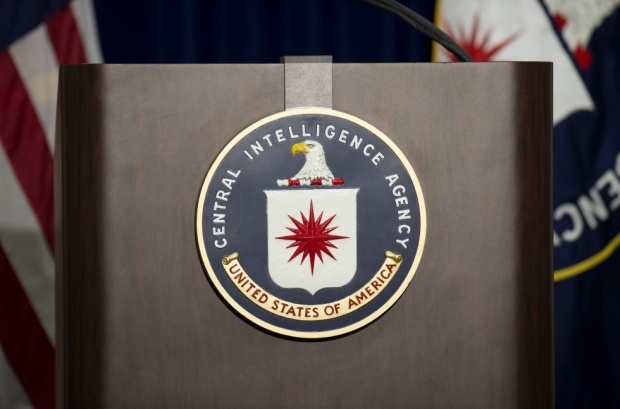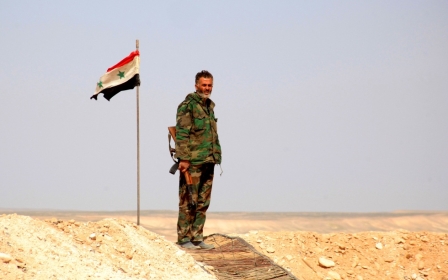Fall of Assad could lead to IS ‘march to Damascus’: CIA

CIA director John Brennan said on Friday that the US did not want a chaotic collapse of the Assad government as it could open the way for militant groups to take power.
The spy agency chief said Washington had reason to worry about who might replace President Bashar al-Assad if his government fell, given the rise of the Islamic State (IS) group and other militants in Syria.
"I think that's a legitimate concern," Brennan said when asked if the US government feared who might succeed Assad.
Speaking at an event at the Council on Foreign Relations, he said that "extremist elements" including IS and al-Qaeda veterans are "ascendant right now" in some parts of Syria.
"The last thing we want to do is allow them to march into Damascus."
He said IS militants were “psychopathic thugs, murderers who use a religious concept and masquerade and mask themselves in that religious construct," Bloomberg News reported.
"That's why it's important to bolster those forces within the Syrian opposition that are not extremists," Brennan said.
“We need to continue to support those elements within Syria that are dedicated to moving Assad and his ilk out, but there has to be some kind of political pathway to the future.”
The US military is funding the training and arming of "moderate" Syrian rebel forces but the effort is only now getting off the ground.
Washington's stance is that Assad should have no role in Syria's future but President Barack Obama's administration and other governments want to see a political solution that would ensure a representative government, he said.
"None of us - Russia, the United States, coalition, and regional states - wants to see a collapse of the government and political institutions in Damascus," Brennan said.
IS exploits digital media
Interviewed before a live audience by PBS television journalist Charlie Rose, the CIA chief also described the viral nature of the threat posed by IS, saying it represented a change from previous organisations.
IS is skilled at exploiting social media to spread its propaganda and recruit, enabling it to extend its reach in a way that was difficult to track and deter, according to Brennan.
"ISIL demonstrates a very worrisome development. It has been a phenomenon that has snowballed in terms of its resonance and appeal," he said, using an alternative acronym for the group.
“The overall threat of terrorism is greatly amplified by today’s interconnected world, where an incident in one corner of the globe can instantly spark a reaction thousands of miles away, and where a lone extremist can go online and learn how to carry out an attack without ever leaving home,” Brennan said.
The emergence of IS in Iraq has seen Washington and Tehran waging war against the same common adversary.
Asked about possible coordination between Iran and the United States against IS, Brennan suggested the two arch-foes are cooperating indirectly through Iraqi partners to defeat the group.
"There's an alignment of some interests between ourselves and Iran" when it comes to fighting IS in Iraq, he said.
"We work closely with the Iraqi government. The Iranians work closely with the Iraqi government as well," he said.
Brennan also defended negotiations with Iran over its nuclear programme, saying the US government has weighed key aspects of a potential agreement with great care.
The talks between world powers and Iran have raised a political firestorm in Washington, with Republican opponents of Obama accusing his administration of preparing to make damaging concessions to Tehran.
But the CIA chief insisted there was no reckless push for a deal.
"This is not something that's being done in any haphazard way," he said.
He added he was confident that the US and other powers taking part would insist on "minimum requirements that we are not going to reduce”.
New MEE newsletter: Jerusalem Dispatch
Sign up to get the latest insights and analysis on Israel-Palestine, alongside Turkey Unpacked and other MEE newsletters
Middle East Eye delivers independent and unrivalled coverage and analysis of the Middle East, North Africa and beyond. To learn more about republishing this content and the associated fees, please fill out this form. More about MEE can be found here.




